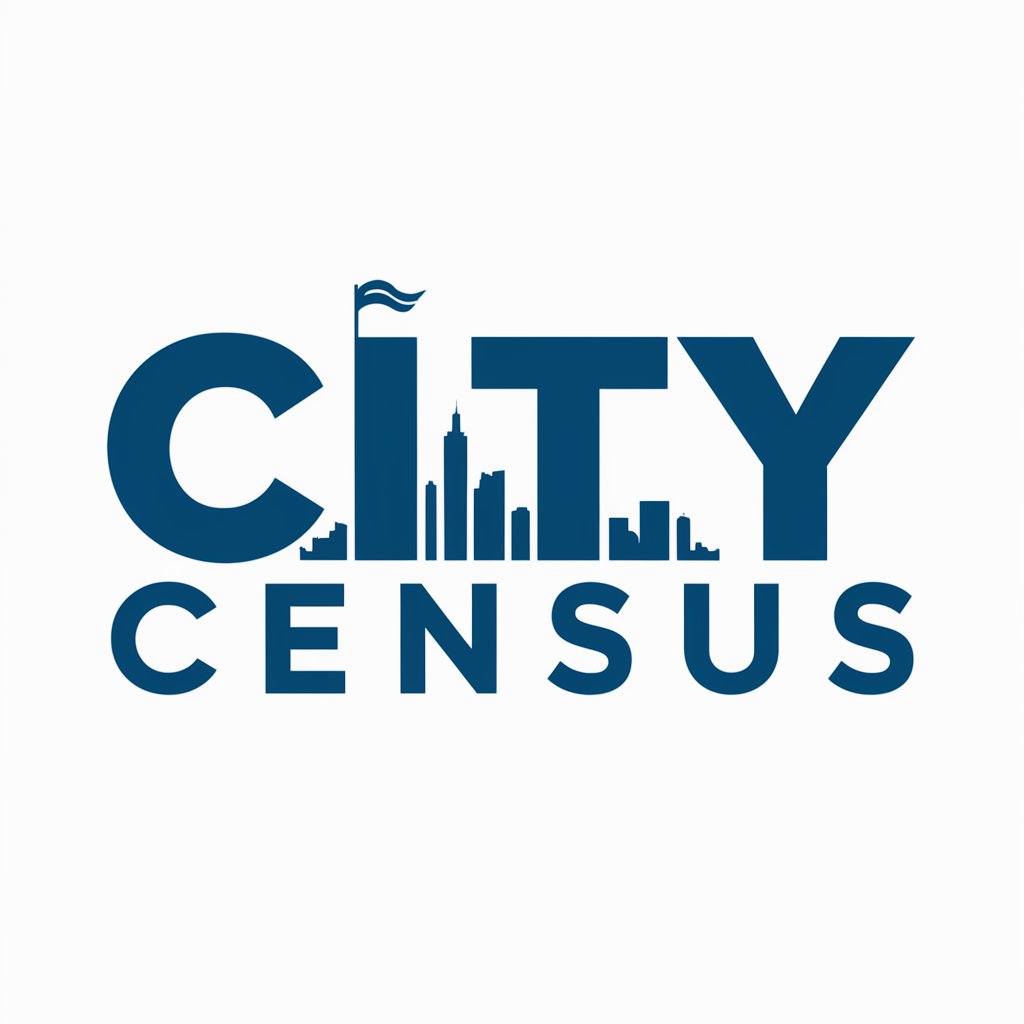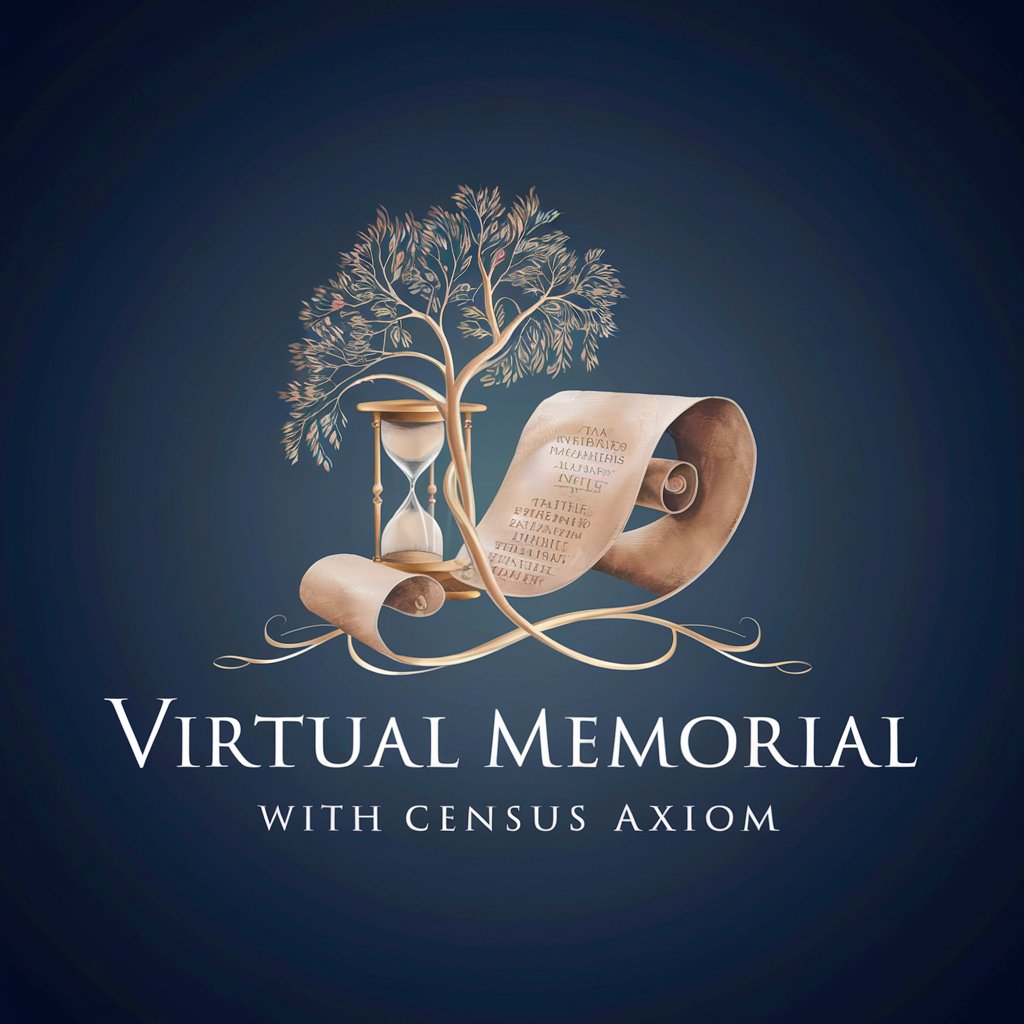City Census - city demographic tool

Welcome to City Census! Get the latest city data at your fingertips.
Demystifying city data with AI
What's the current population of
Can you provide the demographic breakdown for
How has the economic status of
What is the latest census data for
Get Embed Code
Overview of City Census
City Census is designed to provide comprehensive, reliable data about cities around the world. Focused on delivering up-to-date population statistics, demographic details, and economic data, City Census is tailored for users needing precise and current city-specific information. A key feature includes currency conversion to provide economic data in both local currencies and USD, enhancing accessibility and understanding for a global audience. For example, if a user wants to know the economic output of Tokyo in both Japanese Yen and USD, City Census can provide this information with current conversion rates. Powered by ChatGPT-4o。

Core Functions of City Census
Population Statistics
Example
For instance, if a user queries the population of Cairo, City Census will provide not only the total number of residents but also a breakdown by age, gender, and other relevant demographics.
Scenario
A government official planning social services in Cairo could use this detailed population data to tailor programs effectively.
Economic Data Reporting
Example
City Census delivers detailed economic figures such as GDP, employment rates, and per capita income. For Buenos Aires, this might include the GDP in Argentine Pesos and converted into USD.
Scenario
An investor considering market entry into Argentina could assess economic stability and potential business climates using this data.
Demographic Details
Example
It provides age distributions, educational attainment levels, and household sizes for cities like Mumbai, crucial for a nuanced understanding of the local populace.
Scenario
A non-profit organization working on educational programs in Mumbai could leverage this demographic information to target areas with high numbers of school-age children but low educational attainment.
Target User Groups of City Census
Urban Planners and Government Officials
These users rely on accurate, detailed city data to plan infrastructure, public services, and development initiatives effectively. City Census aids in these tasks by providing the necessary data to forecast needs and growth patterns.
Business Analysts and Investors
These professionals use economic and demographic data to identify investment opportunities, market trends, and business risks. City Census's comprehensive economic profiles and demographic insights serve as critical tools for their decision-making processes.
Researchers and Academics
This group benefits from the detailed, reliable data on population dynamics, economic conditions, and social structures to conduct studies, publish research, and develop theories about urban development and economic patterns.

How to Use City Census
Step 1
Visit yeschat.ai for a free trial without login, and no need for ChatGPT Plus.
Step 2
Choose the specific city you are interested in from the provided search option to access demographic and economic data.
Step 3
Use the filter options to refine the data by categories such as population density, economic statistics, or age distribution.
Step 4
Download or export the data for offline analysis or integration into your projects.
Step 5
Utilize the 'Help' section for guidance on interpreting complex data sets and making the most of the tool's features.
Try other advanced and practical GPTs
YouTube Shorts Writer
AI-powered script generator for YouTube Shorts

Insta Creative Spark
Craft Your Story, Visually and Verbally, with AI

IT Architect
Designing Future-Proof IT with AI

Fuji X-H1 Guide
Empower your photography with AI

B2C Startup CMO 🚀
Empowering Startups with AI-Driven Marketing

AI Prompt Tutor
Crafting Smarter Prompts with AI

Virtual Memorial with Genealogy Insight
Remembering the past with the power of AI

Legal Content Bot
Empowering legal content with AI

Aetherius Ai Assistant
Empowering Enlightenment Through AI

Researcher
Empowering your research with AI

Pixel Art Prodigy
Craft Pixel Art with AI Precision

NetCond
Empower your connections with AI-driven reliability.

Frequently Asked Questions about City Census
What types of demographic data can I find on City Census?
City Census provides data on population size, age distribution, ethnic demographics, and household composition.
How current is the economic data provided by City Census?
The economic data on City Census is regularly updated to reflect the most recent available statistics, typically within the current or previous fiscal year.
Can I compare economic data between two cities using City Census?
Yes, City Census allows users to compare economic indicators such as GDP, average income, and employment rates between multiple cities.
Is there a feature to visualize the data for easier interpretation?
Yes, City Census offers graphical representations such as charts and maps to visualize complex data and trends.
How does City Census handle data privacy and security?
City Census adheres to strict data privacy policies ensuring that all demographic data is anonymized and secure, maintaining confidentiality and integrity.
